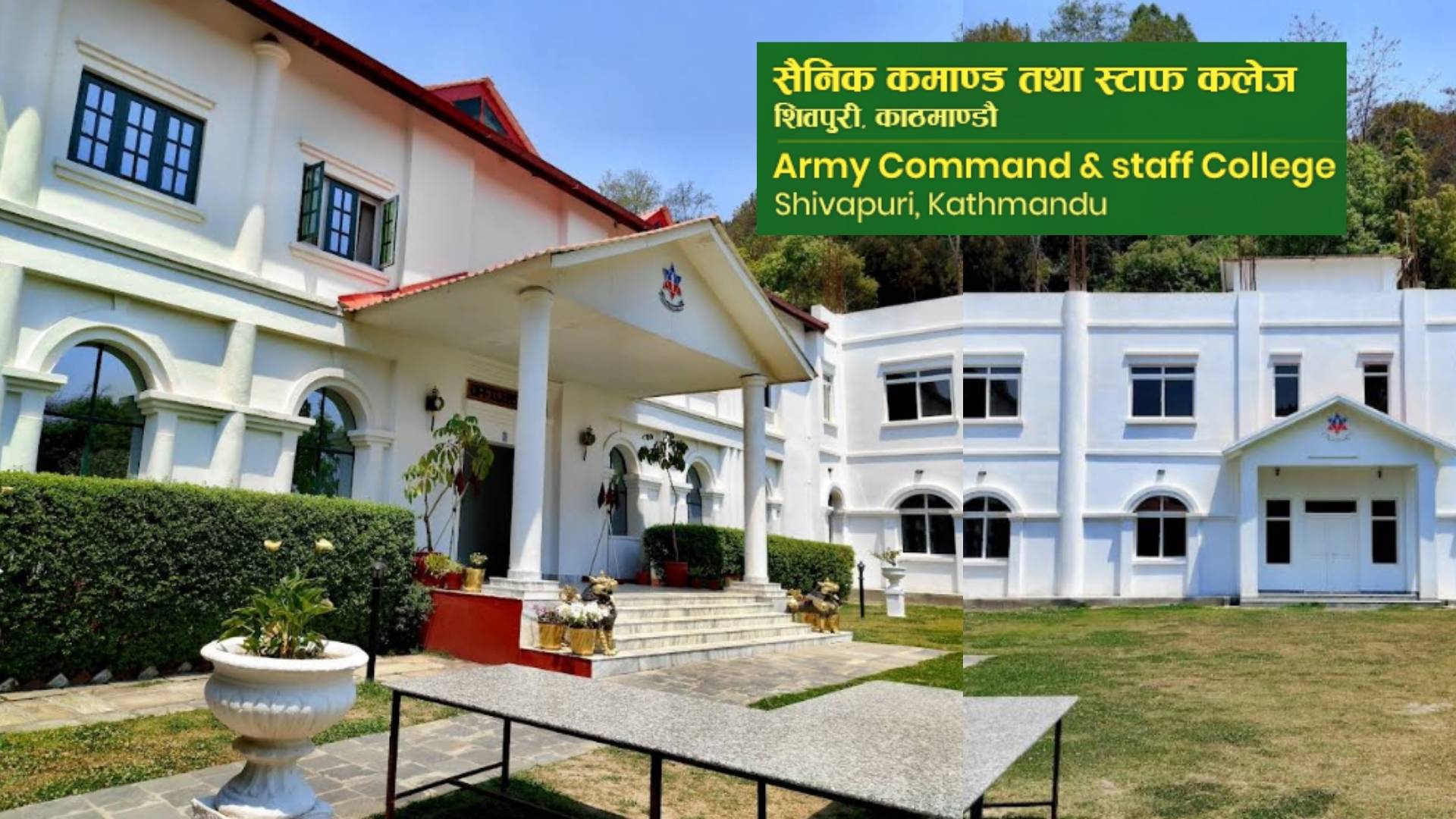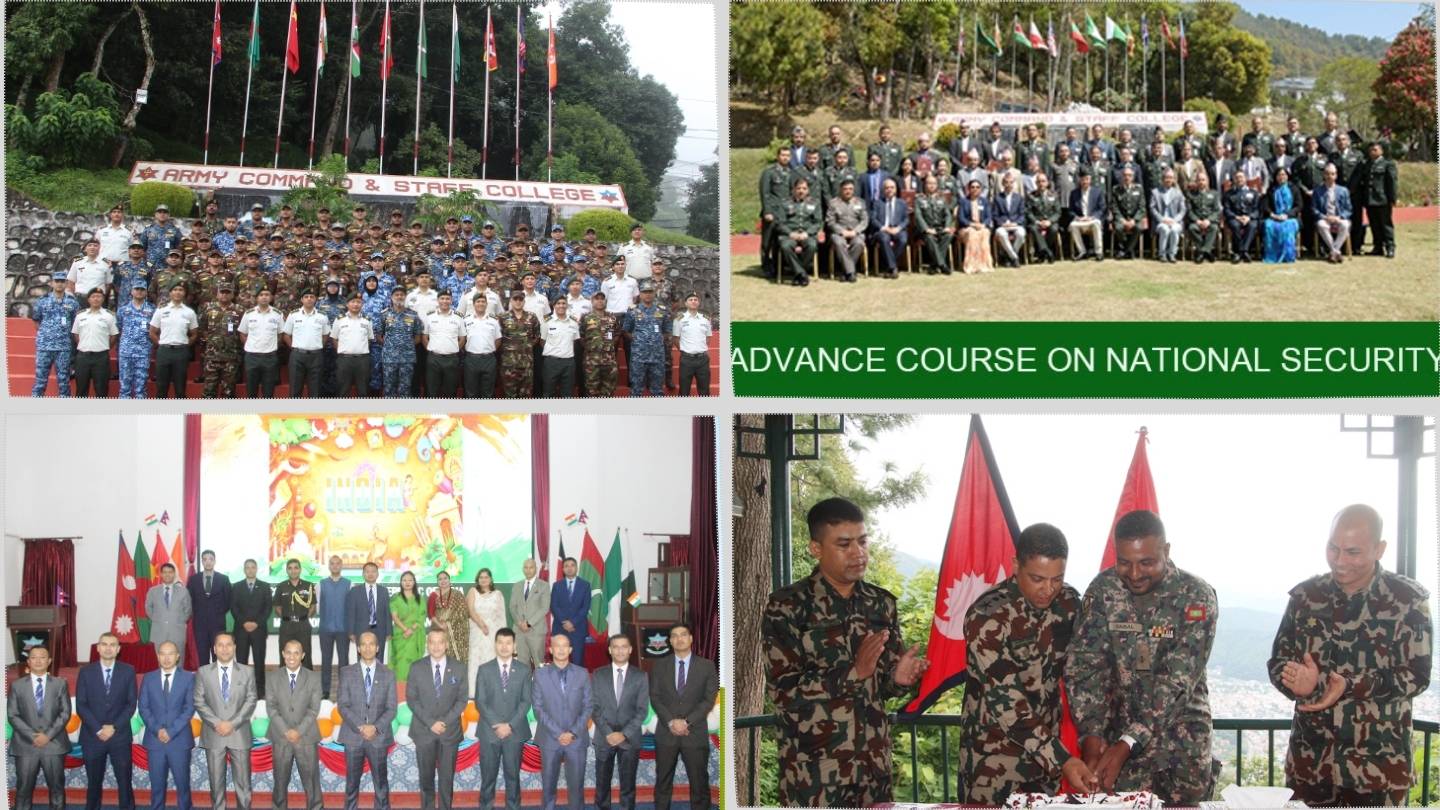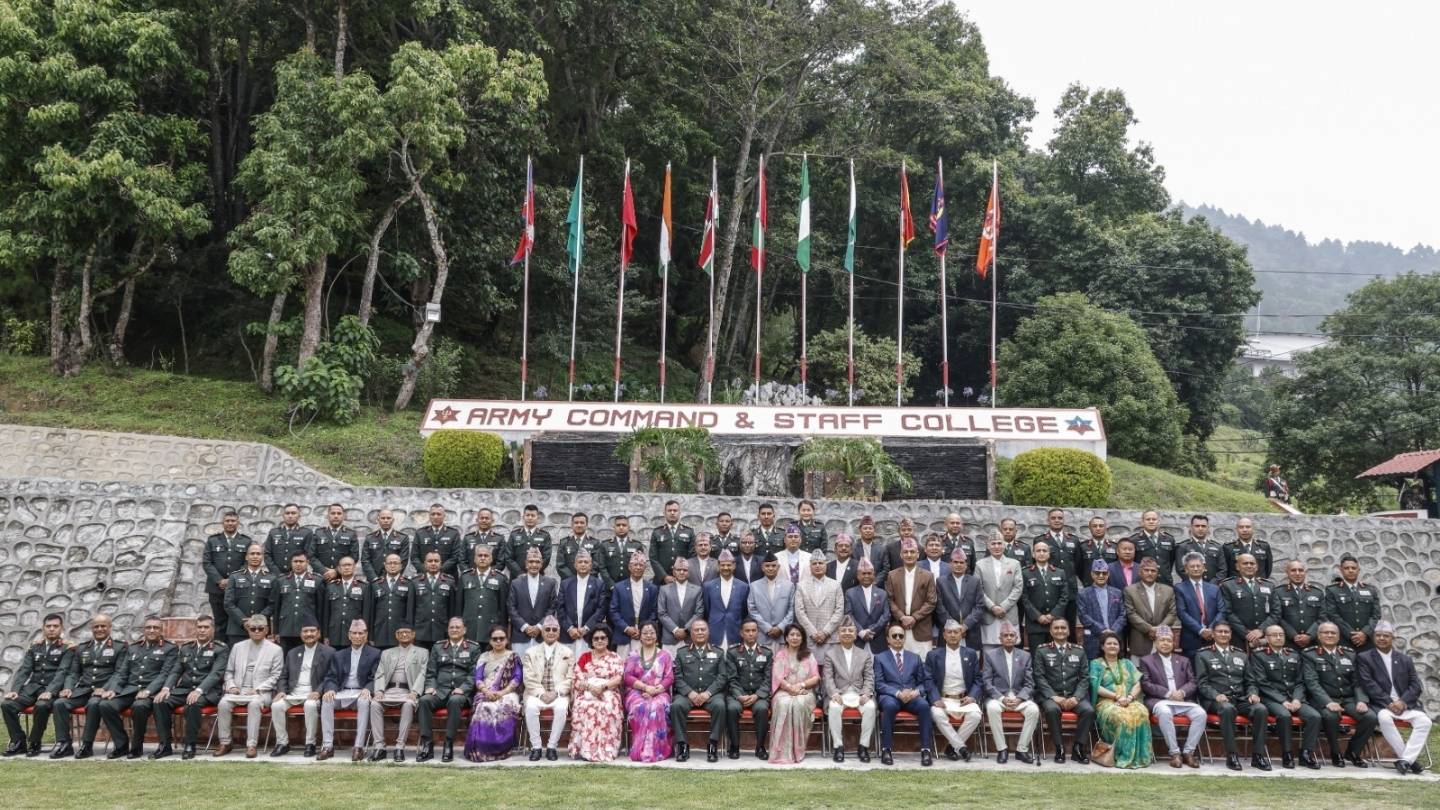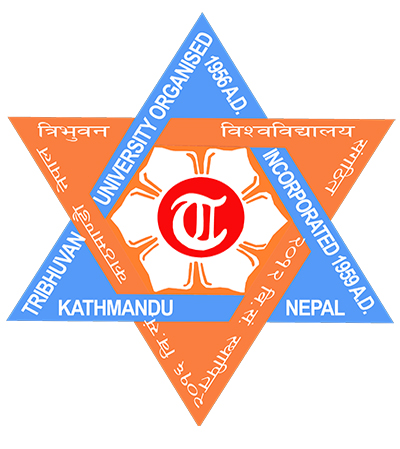Overview
Army Command and Staff College (ACSC), Nepal, sits inside Shivapuri National Park on the northern edge of Kathmandu. The College runs the Tribhuvan University–affiliated Master’s in Strategic Studies (MSS) and the Command and Staff Course for mid-level officers.
Established as a national center for staff education and strategic thought, ACSC blends professional military studies with graduate-level academic work. Instruction is in English. The campus altitude is roughly 6,000 feet. Tribhuvan International Airport lies about 15 km to the south, with road access via the Bansbari junction.

Quick Highlights
-
Affiliation: Tribhuvan University (Faculty of Humanities & Social Sciences) for the MSS degree
-
Graduate Program: Master’s in Strategic Studies (two years, four semesters, 60 credits)
-
Professional Program: Command and Staff Course (about 45 weeks, four terms)
-
Language of Instruction: English
-
Attendance (MSS): Minimum 80% per course; documented medical grounds may receive limited leniency
-
Assessment (MSS): Internal 40% + end-semester 60%; minimum 50% in each component
-
Grading (MSS): Absolute GPA scale (0–4); B- (2.7) per course to pass; semester CGPA target B (≥3.0)
-
Research: Term papers, policy/strategy papers, and a final thesis (MSS)
-
Location: Shivapuri National Park, Kathmandu (quiet, secure academic setting)
-
Facilities: Library, syndicate rooms, ICT zones with Wi-Fi, medical infirmary, sports courts, gym, canteen, transport support for official activities
-
Community: Nepal Army student officers, interagency participants, and international officers
Academic Programs Offered
Master’s in Strategic Studies (MSS)
Program length and credit load. The MSS spans two academic years across four semesters. The total load is 60 credits, with most courses carrying three credits. One credit equals about sixteen contact hours. Scheduled internal assessments fall within the credit structure.
Purpose. The program deepens knowledge of strategic thought, security studies, and the military instrument at national, regional, and international levels. It suits serving officers and civilians who seek careers linked to strategy, security policy, defense studies, law and security, diplomacy, journalism on defense and foreign affairs, or public administration.
Sample content by semester (indicative).
-
Semester I: Military history and strategic thought; contemporary security affairs; operations and administrative management; armed conflict, staff appreciation, and planning; research methods I.
-
Semester II: Staff duties; decision-making in military contexts; information warfare; combat power planning and management; training management.
-
Semester III: Conventional and unconventional warfare; campaign planning and management; research methodology II (strategy and policy paper); war games and exercises.
-
Semester IV: Command and leadership; resource management; military strategies and combat theories; national security and statecraft; international relations; thesis.
Research component. Students complete term papers, a strategy/policy paper, and a capstone thesis under Faculty guidance. The College promotes applied research that links Nepal’s security context with global debates.
Evaluation. Internal work (40%) includes class participation, projects, presentations, and tests. End-semester exams (60%) occur at three- to four-month intervals in coordination with the Faculty of Humanities & Social Sciences, TU. Students must clear internal requirements to sit for the end-semester exam.
Grading and progression. Courses use an absolute GPA scale. Each course requires at least B- (2.7). A semester target of B (CGPA ≥3.0) is set for overall progress. A limited re-examination option may apply for grade improvement in specific cases as per Faculty rules.
Attendance. The normal threshold is 80%. A documented medical situation may allow a controlled exception, with academic approval, to sit for the exam. Students remain responsible for missed work.
Pathways and skills. Graduates gain structured exposure to strategic literature, national security frameworks, civil–military themes, campaign design, planning tools, information operations, and research methods. Alumni serve in defense, public administration, policy analysis, media, and related domains.
Command and Staff Course
Aim. The course prepares mid-level officers for staff appointments and future command duties. It builds shared understanding of staff procedures, operational art, logistics, intelligence, training, and civil–military interfaces.
Curricular blocks. Instruction covers staff work; arms and services; offensive and defensive operations; counter-insurgency and counter-terrorism; intelligence; administration and logistics; training; leadership and resource management; civil–military relations; disaster management; international humanitarian law; UN peace operations; and planning at formation level.
Methodology. Learning leans on syndicate work under a Directing Staff (DS), supported by lectures, map problems, sand model discussions, tactical exercises without troops (TEWTs), telephone battles, and war games. Microsoft PowerPoint is used for presentations. English remains the medium.
Structure and duration. The course runs about 45 weeks. It includes a short orientation for international officers and interagency participants, four academic terms, internal and external study tours, and breaks between terms.
Admission Process
MSS (TU-Affiliated Graduate Program)
-
Eligibility. A Bachelor’s degree in any field from Tribhuvan University or a TU-recognized university.
-
Application. Submission of academic records and required documents to the College/Faculty per the intake announcement.
-
Selection. Screening uses academic criteria and program capacity. International and interagency candidates with recognized Bachelor’s degrees may join the MSS track; their first semester examination aligns with their arrival schedule, followed by integration with the national cohort.
-
Enrollment. Accepted candidates complete registration, receive ICT credentials, and join orientation briefings.
-
Academic rules. Students maintain attendance, meet internal assessment deadlines, and comply with exam protocols set jointly by the College and TU Faculty.
-
Progression. Advancement depends on meeting pass marks in internal and end-semester assessments and on achieving the semester CGPA target.
Command and Staff Course
Selection for the professional course follows the nominating authority’s rules for serving officers. International and interagency seats may be filled through official channels. The College communicates joining instructions, dress and kit lists, and reporting procedures to selected candidates.
Teaching Faculty and Learning Methodology
Faculty composition. ACSC combines military Directing Staff with academic specialists and visiting resource persons. This mix links doctrine, operations, and scholarship. Assignments often require both doctrinal accuracy and engagement with current strategic literature.
Syndicate system. Small groups work through cases, plans, and reviews under a DS. Rotations introduce participants to varied teaching styles and peer groups. This structure encourages critical discussion, concise written work, and clear briefings.
Assessment culture. Continuous appraisal supports steady progress: short tests, map exercises, plan checks, seminar inputs, policy memos, and presentations. Feedback stresses clarity, precision, and practical reasoning.
Research and writing. The MSS track embeds research methods and thesis supervision. The professional course includes staff writing formats, estimates, planning orders, and command papers where applicable.
Infrastructure and Learning Facilities
Campus setting. The College sits inside a protected forest zone. The quiet setting supports focused study, field movement, and low-distraction planning work.
Learning spaces. Syndicate rooms, lecture halls, and a library form the core. The library hosts strategic texts, journals, doctrinal references, and national security materials. War-gaming tools and terrain models back the practical exercises.
ICT and internet. Wireless access points cover accommodation, library, syndicate rooms, and common areas. Students register devices with the ICT office and receive credentials. The service supports reading and research; heavy downloads may slow during peak hours. A complaints log and desk hours (roughly 0800–1530) handle support.
Medical care. A 24/7 infirmary provides basic care with a nursing assistant on duty. A doctor visits regularly. Ambulance transfer to the Military Hospital is available for further treatment when required.
Sports and fitness. Given the terrain, room for courts is limited, yet volleyball, basketball, and lawn tennis are available. The gym houses core equipment. Nearby trails lend themselves to walks, hikes, and light endurance work.
Canteen and daily services. A canteen near the residential area supplies essentials at reasonable prices, with a system to request out-of-stock items. Tailor, barber, and cobbler visits occur on working days in a fixed time window.
Transport support. The College organizes transport for official training activities, visits, and duties. Pick-up and drop services apply for arrivals and final departures of international officers as per joining instructions. Scheduled shopping transport for international families runs twice a week.

Student Life and Campus Experience
Academic rhythm. Weekdays balance classes, syndicate work, reading, and preparation for exercises. Group planning sessions and rehearsals are common. Evenings are often used for reading or gym time.
Community norms. The environment is professional. Punctuality, uniform standards (where applicable), and respect for the protected park setting are expected. Study groups often form across services and nations, which helps exchange perspectives.
Family considerations. International officers may arrive with families. The campus supports basic needs through the canteen, scheduled shopping transport, and internet zones. Quiet hours protect study and rest.
Extracurricular Activities (ECA)
-
Games and fitness: Timetabled sports periods and friendly tournaments
-
Outdoor activities: Walks and hikes in the Shivapuri area with safety awareness
-
Academic clubs: Reading circles or topical seminars when schedules permit
-
Cultural exchange: Events where international officers share customs and practices
These activities complement the formal timetable and help maintain morale during rigorous study blocks.
Scholarships and Financial Support
Fee structures and any tuition support for the MSS track follow Tribhuvan University and institutional rules for each intake. Serving officers may be sponsored by their organizations as per service regulations.
International participants should confirm funding, allowances, and logistics through their sending institutions or government agencies. Applicants seeking fee relief or scholarships should review the official intake notice and contact the College/Faculty office for the current policy window.
Achievements and Institutional Milestones

Founding and growth. The College traces its origin to the early 1990s as Nepal expanded professional education for mid-level command and staff roles. After site evaluations, the College settled at Shivapuri. A dedicated instructional block opened in the 2050 BS calendar. In 2006, the institution received Tribhuvan University affiliation for the MSS program, aligning professional study with a recognized graduate degree.
Academic standing. The TU affiliation anchors graduate work to national standards. The MSS curriculum reflects strategic thought, security studies, and planning disciplines taught in comparable staff colleges and public universities worldwide, adapted to Nepal’s legal and policy environment.
Regional reach. International officers and interagency participants strengthen dialogue and peer learning. This mix supports interoperability and shared understanding of doctrines, rules, and planning methods.
Ethos and identity. The official motto, “Strength, Wisdom, and Courage,” summarizes the qualities expected of graduates. The College emblem—a hexagon enclosing a ceremonial blade—draws on classical symbolism of knowledge, clarity of mind, service, and the duty to protect.
Why Choose This Institution?
-
Integrated professional and academic pathways. Officers complete a recognized master’s degree while advancing staff competencies in operations, logistics, intelligence, and planning.
-
Strong planning culture. Map problems, TEWTs, war games, and syndicate tasks build habits of structured analysis and concise staff writing.
-
Research practice. The MSS thesis and policy papers train students to connect field realities with strategic frameworks and evidence.
-
Interagency and international exposure. Mixed cohorts foster shared vocabulary and practical coordination skills that matter in joint, interagency, and multinational settings.
-
Setting that supports focus. The Shivapuri location offers quiet study time and space for outdoor fitness, with quick access to Kathmandu’s official hubs when needed.
-
Clear rules and transparent evaluation. Attendance, internal assessments, exams, grading, and progression thresholds are stated up front, which assists auditing and reporting.
-
Alignment with national education standards. TU affiliation places the MSS within Nepal’s higher-education system and provides an academic transcript recognized across sectors.
Conclusion
Army Command and Staff College, Shivapuri, delivers graduate-level strategic education alongside a proven professional staff course. The College’s TU-affiliated MSS sets clear requirements on attendance, internal work, examinations, and grading. The staff course builds practical planning skills through exercises and guided syndicate work. Facilities—library, ICT zones, medical care, sports spaces, and daily services—support the academic load and the rhythm of staff training.












